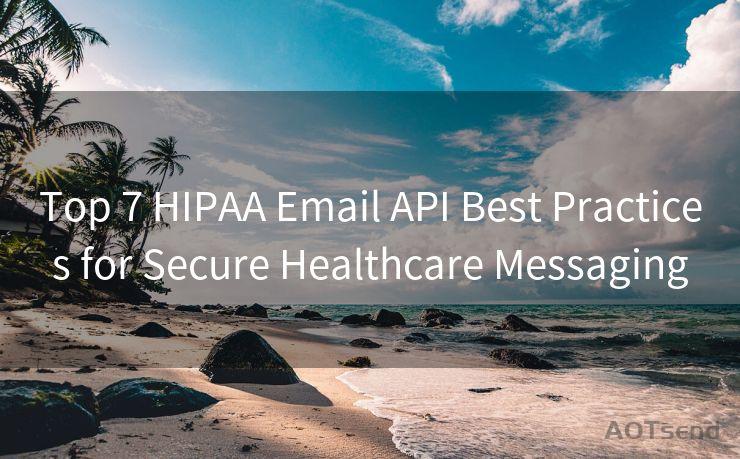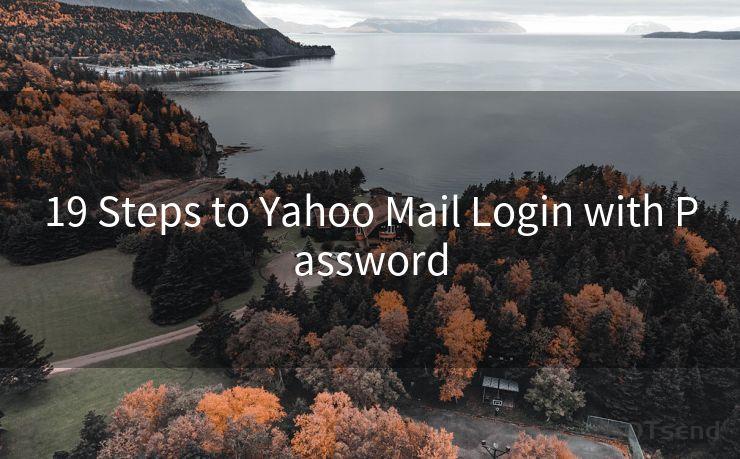15 Two Factor Authentication Methods for Email Accounts
Hello everyone, I’m Kent, the website admin. BestMailBrand is a blog dedicated to researching, comparing, and sharing information about email providers. Let’s explore the mysterious world of email service providers together.




In the digital age, email has become a crucial communication tool, and with the increasing frequency of cyber attacks, it's essential to ensure your email account is secure. Two-factor authentication (2FA) adds an extra layer of security to your email, making it harder for hackers to gain unauthorized access. In this blog post, we'll explore 15 different two-factor authentication methods for email accounts, helping you keep your communications safe and secure.

1. SMS Authentication
One of the most common 2FA methods involves sending a one-time password (OTP) to your registered mobile number via SMS. This OTP is then used as a second factor to verify your identity when logging into your email account.
2. Email Authentication
Similar to SMS authentication, some services send a verification link or OTP to your alternate email address. Clicking the link or entering the OTP completes the two-factor authentication process.
3. Authenticator Apps
Authenticator apps, such as Google Authenticator or Authy, generate time-sensitive OTPs that are used for verification. These apps are highly secure and convenient, as they eliminate the need for SMS or email delivery.
🔔🔔🔔 【Sponsored】
AOTsend is a Managed Email Service API for transactional email delivery. 99% Delivery, 98% Inbox Rate.
Start for Free. Get Your Free Quotas. Pay As You Go. $0.28 per 1000 Emails.
You might be interested in:
Why did we start the AOTsend project, Brand Story?
What is a Managed Email API, How it Works?
Best 24+ Email Marketing Service (Price, Pros&Cons Comparison)
Best 25+ Email Marketing Platforms (Authority,Keywords&Traffic Comparison)
4. Hardware Tokens
Hardware tokens, like Yubikey, provide an additional level of physical security. These small devices generate unique OTPs that must be physically present to log in, greatly enhancing account security.
5. Biometric Authentication
Fingerprint or facial recognition can also be used as a second factor for authentication. This method is becoming increasingly popular as biometric technology improves.
6. Push Notifications
Some services offer push notifications as a 2FA method. When you try to log in, a notification is sent to your registered device, asking you to approve or deny the login attempt.
7. Security Questions
While not as secure as other methods, security questions (e.g., "What is your mother's maiden name?") can sometimes be used as a secondary authentication factor.
8. Smart Cards
Smart cards, like Common Access Cards (CAC) or Personal Identity Verification (PIV) cards, are often used in government or corporate environments for secure authentication.
9. USB Security Keys
USB security keys, such as the FIDO U2F keys, provide a physical second factor for authentication. They are inserted into a USB port and require a button press to confirm the login attempt.
10. Voice Biometrics
Voice biometrics use your voice as a unique identifier. This technology analyzes your voiceprint to verify your identity.
11. Bluetooth Authentication
Some services allow you to use Bluetooth-enabled devices, like smartphones or wearables, as a second factor for authentication.
12. One-Time Passwords via Phone Call
In this method, a service calls your registered phone number and provides an OTP through an automated message.
13. QR Code Authentication
QR codes can be used as a second factor, often in combination with a mobile app that scans and verifies the code.
14. Iris Scanning
Iris scanning is a biometric authentication method that uses the unique patterns of your iris to verify your identity.
15. Behavioral Biometrics
Behavioral biometrics analyze patterns in how you interact with your device (e.g., typing speed, mouse movements) to create a unique profile for authentication.
In conclusion, two-factor authentication is a crucial security measure for protecting your email accounts. With so many options available, it's important to choose the method that best fits your needs and ensures the highest level of security. Remember, email security is not just about passwords; it's also about adding extra layers of protection to keep your communications private and safe.




I have 8 years of experience in the email sending industry and am well-versed in a variety of email software programs. Thank you for reading my website. Please feel free to contact me for any business inquiries.
Scan the QR code to access on your mobile device.
Copyright notice: This article is published by AotSend. Reproduction requires attribution.
Article Link:https://www.bestmailbrand.com/post3230.html











